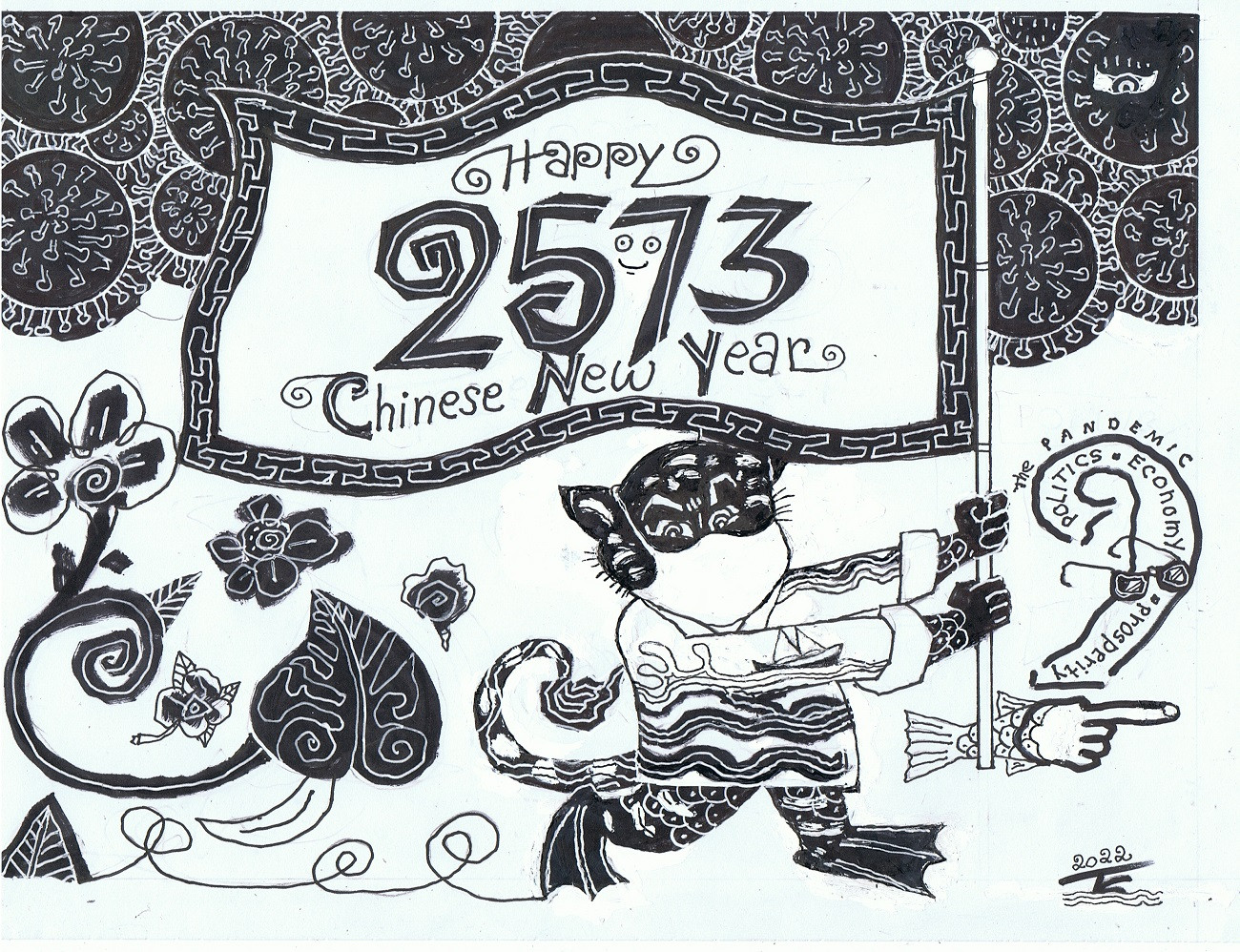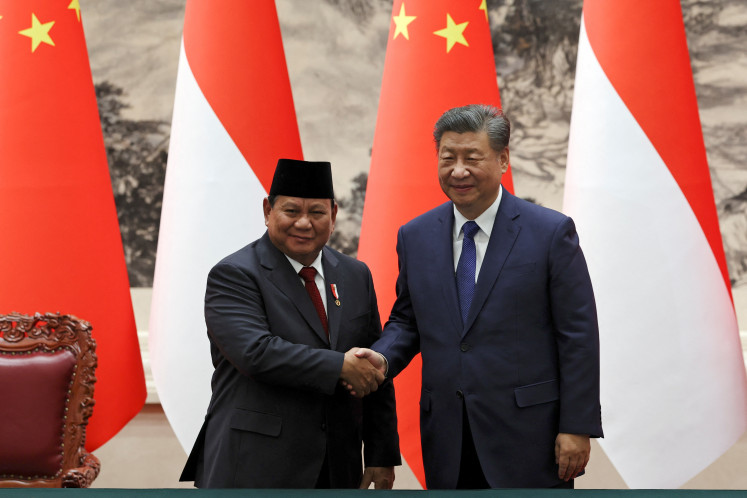Popular Reads
Top Results
Can't find what you're looking for?
View all search resultsPopular Reads
Top Results
Can't find what you're looking for?
View all search resultsImlek 2022: Thankfulness and hope
Chinese New Year in Indonesia is a cultural celebration that brings together people of diverse backgrounds, and this year's holiday offers an occasion for reflection and gratitude.
Change text size
Gift Premium Articles
to Anyone
F
or the third year in a row, Chinese New Year, called Imlek in Indonesia, will be celebrated around the world under coronavirus restrictions. The prolonged pandemic has claimed millions of lives and devastated many others.
But Chinese New Year, which falls on Feb. 1 this year, will be the right moment for us to reflect on what we have and have not accomplished and to gather our hopes for good fortune through the coming year. As Chinese people have done for millennia, we can join in the festivities to repel the bad and the old to welcome the new and good.
For Indonesia, Imlek arrives at a time when the new and more transmissible Omicron strain is gaining ground. It has spread rapidly since the first case was announced last month, quickly followed by cases of local transmission.
Regardless of its shortcomings, the government has done a good job in providing free vaccines for all to protect the entire nation from the virus. The government is now pushing a free booster program to effectively protect its citizens from Omicron.
To be fair, the government deserves acknowledgement for what it has done to save many lives. After the devastating second wave in mid-2021, the government has managed to bring COVID-19 relatively under control.
Many might not have expected Indonesia to exceed the World Health Organization’s recommended vaccination coverage. Indonesia is not far behind even wealthier and more advanced countries and territories like the United States, the European Union, Japan and China, which have everything from vaccine supplies to infrastructure and human resources. As the pandemic is unlikely to end anytime soon, we can only hope that the government will be able to maintain, if not improve, its performance.
Incidentally, optimism and confidence are among the characteristics of the Water Tiger, the zodiac that "rules" 2022. According to Chinese beliefs, people born in the Year of the Tiger are brave, competitive, unpredictable and confident.
Unlike Christmas, Idul Fitri, Waisak or Nyepi, Imlek is not a religious celebration but a cultural event, although Indonesia acknowledges Confucianism as one of its six official religions. As a cultural festival, therefore, Imlek brings together not only Chinese-Indonesians, who make up 3 percent of the population, but also people of different ethnic backgrounds and faiths.
It’s safe to say that Imlek has become one of the archipelago’s divers cultural pearls, thanks in part to the Reform era that marked the country’s shift from an authoritarian to a democratic regime.
Of course, Indonesia’s democracy is not perfect, but minority groups like Chinese-Indonesians are still guaranteed their civil rights, just like any other citizen. There has been fear that interracial relations in democratic Indonesia will continue to face challenges, such as the wealth gap between the “indigenous” majority and “nonindigenous” minority, but recent developments show otherwise.
Happy Year of the Water Tiger to all those who celebrate it! May prosperity and health grace us throughout 2022, so we can finally celebrate our freedom from COVID-19 next year.











